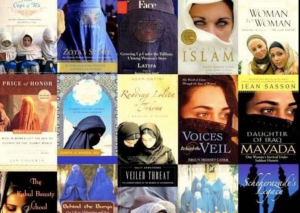I came across some interesting articles on polygamy on the occasion of the controversial HBO series "Big Life" (which concerns a polygamous marriage in Utah). One journalist who normally covers economics has written a limited defense of polygamy ("I do, I do, I do, I do: The economic case for polygamy") in Slate.
Among other things, he argues that, as counterintuitive as it may be, polygamy can increase some women’s bargaining strength with prospective spouses due to polygamy’s reduction of the total number of potential wives. If some husbands take multiple wives, that leaves fewer choices for the remaining men and, the logic goes, more leverage in the hands of other women when negotiating relationship responsibilities.
I’m not a fan of polygamy in most circumstances or societies today, but I do find some of his economic arguments for the potential advantages of for women intriguing, especially his highly original comparison to prison populations!.
A little over one in 100 American men are in prison—but there are several states where one in five young black men are behind bars [A shameful and sobering indication of America’s continuing race problems –Svend ]. Since most women marry men of a similar age, and of the same race and in the same state, there are some groups of women who face a dramatic shortfall of marriage partners.
Economist Kerwin Charles has recently studied the plight of these women. Their problem is not merely that some who would want to marry won’t be able to. It’s that the available men—those not in prison—suddenly have more bargaining power. Goodbye to doing the dishes and paying the rent; hello to mistresses and wham, bam, thank you ma’am. The women whose potential partners have had their ranks thinned by prison are less likely to marry, and when they do marry, are likely to marry a man less educated than they are. Meanwhile, the remaining men, finding a surfeit of marriage partners, suddenly seem in no hurry to marry. And why would they?
Whether those benefits really manifest in the real world or end up being outweighed by other patriarchal practices and attitudes that tend to accompany polygamy in practice, I don’t know, though.
Must confess, though, that I don’t believe it should be illegal, and not just for the obvious religious reasons (e.g., the fact that it is explicitly allowed in certain circumstances in the Quran, or that its appears frequently in the lives of the great prophets of Islamic, Jewish and Christian tradition).
Given this institution’s propensity for abuse–whether polygamy encourages this phenomenon or such men are just more likely to be polygamous, a lot of polygamist men do seem to really like ’em awfully young–I think it should be carefully monitored and regulated, but so long as those involved are consenting adults, I see no ethical argument for a ban.
Moreover, contemporary anti-polygamy bans are surreally out of step with contemporary American legal and social values. There’s something downright bizarre about these restrictions in the era of popular indifference the Monica Lewinsky scandal.
And they’re clearly an unconstitutional instance of unequal treatment and an invasion of privacy. Jonathan Turley points out in USA Today ("Polygamy laws expose our own hypocrisy") how inconsistent the law is regarding polygamy:
Individuals have a recognized constitutional right to engage in any form of consensual sexual relationship with any number of partners. Thus, a person can live with multiple partners and even sire children from different partners so long as they do not marry. However, when that same person accepts a legal commitment for those partners "as a spouse," we jail them.
Likewise, someone such as singer Britney Spears can have multiple husbands so long as they are consecutive, not concurrent. Thus, Spears can marry and divorce men in quick succession and become the maven of tabloid covers. Yet if she marries two of the men for life, she will become the matron of a state prison.
Another observer Steve Chapman, writes in Slate ("Two’s Company; Three’s a Marriage: In Praise of Polygamy"):
The law, in short, doesn’t prevent a man from being licentious, promiscuous, irresponsible, and thoroughly goatish. Had Green just shacked up with a harem of willing single women, no one would have cared. But when he lives as a dutiful husband to five women in a collection of trailer homes in the Utah desert, he somehow presents a dire threat to our social foundation. This brings to mind heterosexuals accusing homosexuals of undermining marriage, even as heterosexuals have left it in tatters. The argument for allowing polygamy has much in common with the argument for letting gays enter into matrimony. If consenting adults who prefer polygamy can do everything else a husband and wife can do—have sex, live together, buy property, and bring up children jointly—why should they be prohibited from legally committing themselves to the solemn duties that attach to marriage? How is society worse off if these informal relationships are formalized and pushed toward permanence?
Again, I’m not a fan of polygamy today and it’s sure not for me, but I am a firm believer in freedom and in equal treatment before the law. What’s good for the monogamist ought to be equally good for the bigamist.
The bans have no place in a free society, especially an increasingly secular one. They’re more a manifestation of prejudice and paternalism than concern for women, I believe.
P.S. Baraka has a thoughtful post on the show and whole question of polygyny (Truth & Beauty: "Polygyny/Polygamy".











